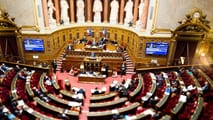S'identifier
S'inscrire
Par ECLJ1287513339373
Traduction à venir.
Articles plus récents
Actualités

Turquie: la CEDH valide l’expropriation programmée d’une fondation arménienne
1769765802682

Euthanasie : l’ADMD démasquée
1769510428162

Syrie, RDC, Turquie, Irak et Algérie: 5 priorités de l’ECLJ face à hausse de la persécution des chrétiens en 2025
1769440073700

Euthanasie : j'alerte mon député
1769180586323

Euthanasie : Première victoire au Sénat
1769065260000

Aux origines de l’ADMD : eugénisme anglo-saxon et « internationale humaniste »
1768769897170

Euthanasie: le texte français est le plus répressif au monde à l’égard des établissements confessionnels
1767697447300

Euthanasie : j'alerte mon sénateur
1766113140000

